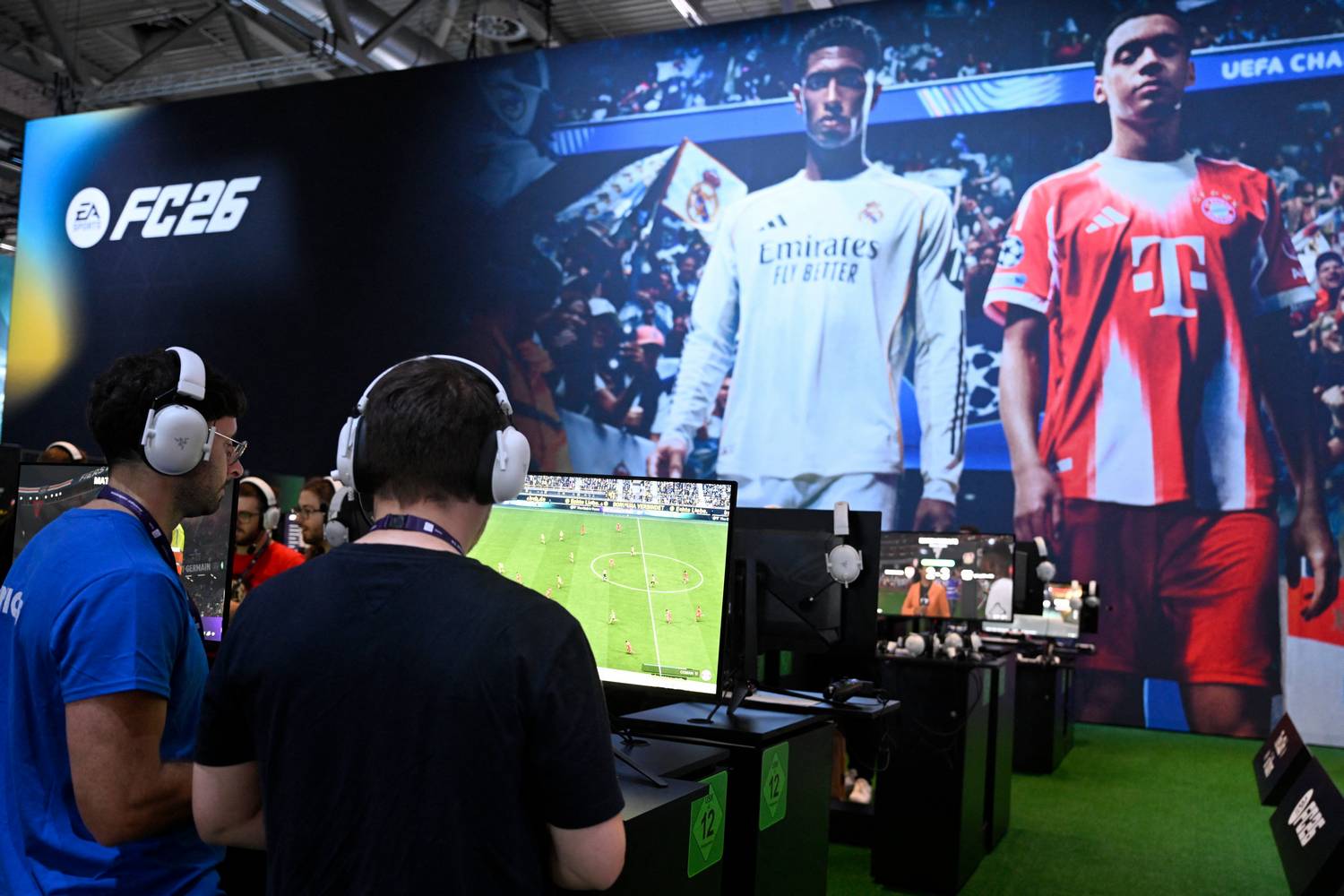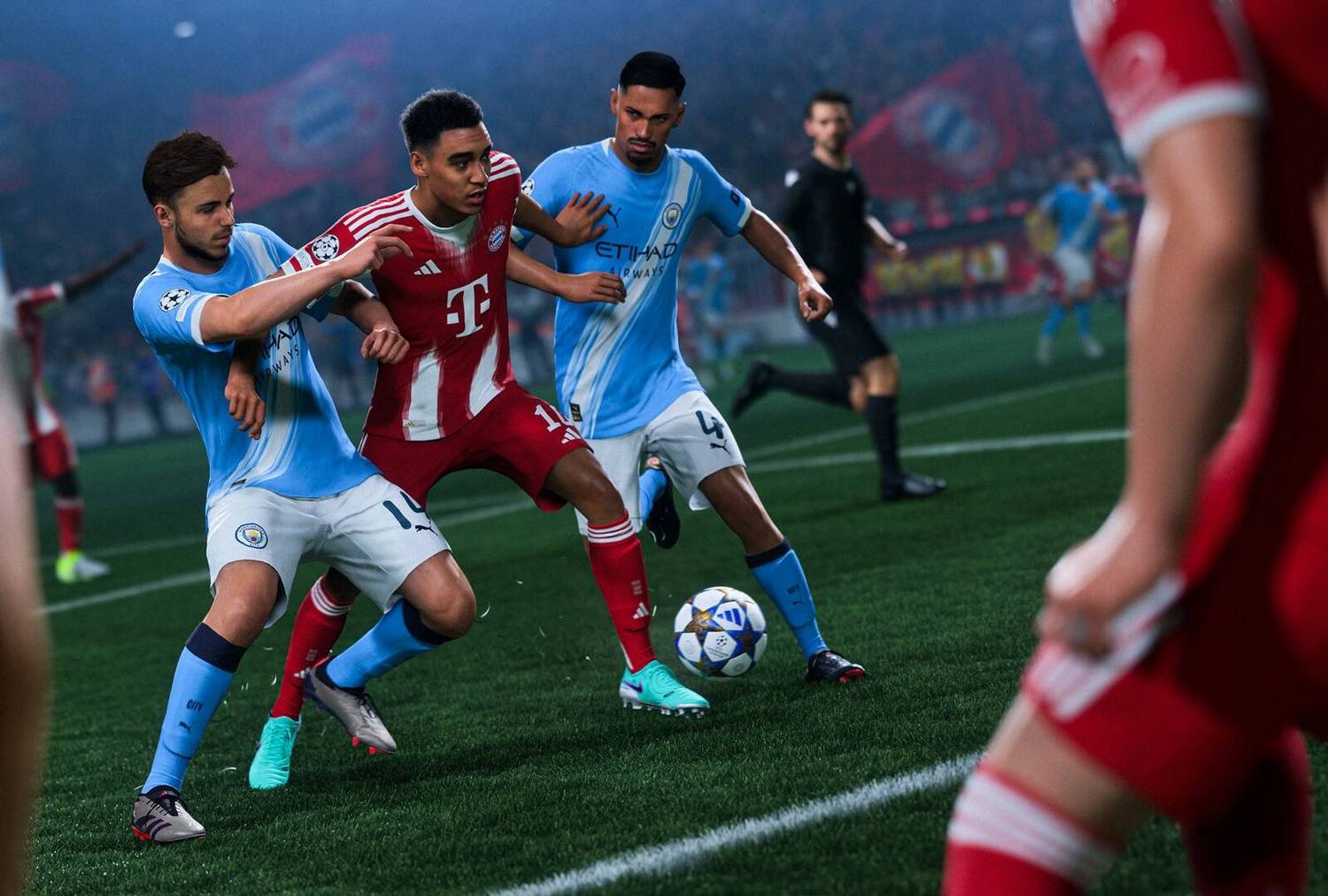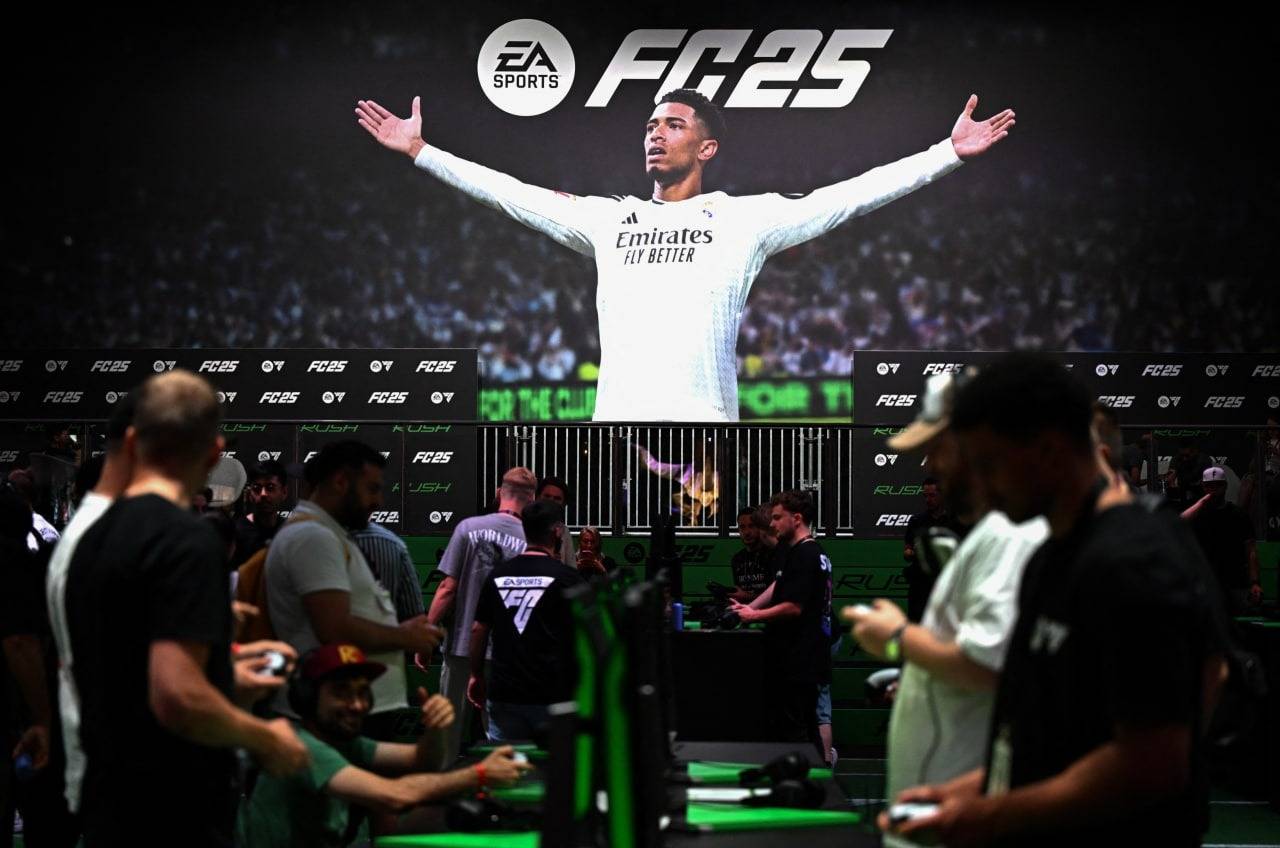BREAKING NEWS: EA Set to Go Private in Historic $50 Billion Leveraged Buyout
Popular Now
 NBA 2K24
NBA 2K24
 Genshin Impact
Genshin Impact
 God of War Ragnarök
God of War Ragnarök
 Brawl Stars
Brawl Stars
 CarX Street
CarX Street
 Candy Crush Saga
Candy Crush Saga
 Call of Duty
Call of Duty
 Sonic the Hedgehog™ Classic
Sonic the Hedgehog™ Classic
 EA SPORT FC 25
EA SPORT FC 25
 Grand Theft Auto V
Grand Theft Auto V 
REDWOOD CITY, CA — Video game behemoth Electronic Arts (EA), the publisher behind blockbuster franchises such as EA Sports FC, Madden NFL, The Sims, and Battlefield, is reportedly finalizing a monumental deal to be taken private. Sources close to the negotiations suggest the transaction could be valued at approximately $50 billion, setting a new record as potentially the largest leveraged buyout (LBO) in history.
The news, which sent EA’s stock soaring by nearly 15% on the market, signals a seismic shift for one of the longest-standing public companies in the gaming industry, which has traded on the stock exchange since 1990. The decision to exit the public market comes amidst a tumultuous period for the sector, characterized by rising development costs for AAA titles and a growing focus on the lucrative, yet often controversial, live services model that dominates EA’s revenue streams.
 The Investor Consortium: Private Equity, Sovereign Wealth, and Political Ties
The Investor Consortium: Private Equity, Sovereign Wealth, and Political Ties
The investor group orchestrating this massive acquisition is a powerful coalition of global finance, technology investment, and sovereign wealth. The key players reportedly include:
- Silver Lake: A major private equity firm known for its focus on technology investments, lending its expertise in massive corporate restructuring.
- Saudi Arabia’s Public Investment Fund (PIF): The sovereign wealth fund, which already holds a significant stake in EA (around 10%), continues its aggressive global strategy of diversifying its portfolio through high-value investments in the entertainment and video game sectors.
- Affinity Partners: The investment firm led by Jared Kushner, which is primarily backed by the Saudi PIF.
The deal is structured as a leveraged buyout, meaning a substantial portion of the $50 billion price tag is financed by more than $20 billion in debt, a figure reportedly being arranged by JPMorgan. If completed, the transaction would surpass the 2007 $45 billion buyout of energy firm TXU in dollar terms, securing its place in financial history.
Why Go Private? The Strategy Behind the Takeover
The move to take a major player like Electronic Arts private is driven by several critical factors:
1. Shielding from Quarterly Scrutiny: As a private entity, EA would be liberated from the relentless pressure of delivering escalating quarterly earnings reports to Wall Street. This freedom is highly valuable, allowing management—potentially including CEO Andrew Wilson—to make long-term strategic decisions without immediate investor backlash. Such moves could include radical shifts in its game development pipeline, a renewed focus on new intellectual property, or even a complete overhaul of its microtransaction and live services structure.
2. Deepening Live Services and Mobile Push: Analysts suggest that the predictable, subscription-based revenue from EA’s core sports titles—like Madden and the rebranded EA Sports FC—makes the company an ideal target for a private equity model. The investors may seek to maximize the value of its vast library by more aggressively porting key IPs to the mobile gaming market and intensifying the focus on persistent, high-margin live-service content like Apex Legends.
3. Industry Consolidation and AI Integration: This potential deal follows a trend of massive consolidation in the gaming sector, highlighted by Microsoft’s acquisition of Activision Blizzard. Private ownership could allow EA to quietly make significant, long-term investments in new technologies like artificial intelligence (AI) to drastically reduce the soaring costs of game development, which currently run into the hundreds of millions for a major release like the upcoming Battlefield 6.
 Impact on Franchises and Players
Impact on Franchises and Players
For millions of gamers globally, the shift to private ownership raises significant questions about the future trajectory of their favourite franchises. A private EA has a dual potential impact:
- Potential for Riskier, Longer-Term Projects: Freed from the need for constant short-term profit growth, development studios like BioWare (Mass Effect, Dragon Age) and Respawn (Star Wars Jedi, Apex Legends) could be given the financial runway to pursue more ambitious, less commercially guaranteed projects, potentially leading to a quality renaissance.
- Risk of Aggressive Cost-Cutting: Conversely, LBOs are often associated with aggressive cost-cutting measures, layoffs, and the “milking” of valuable intellectual property to service the massive debt load. This could lead to an even greater intensification of monetization strategies, impacting the player experience across the entire EA catalog, from The Sims to its popular FPS titles.
With an announcement rumored to be imminent, the gaming world awaits confirmation of this landmark deal, which is poised to redefine the financial landscape of the interactive entertainment industry and set the stage for a new, private chapter for the nearly $50 billion publisher.









 The Investor Consortium: Private Equity, Sovereign Wealth, and Political Ties
The Investor Consortium: Private Equity, Sovereign Wealth, and Political Ties Impact on Franchises and Players
Impact on Franchises and Players